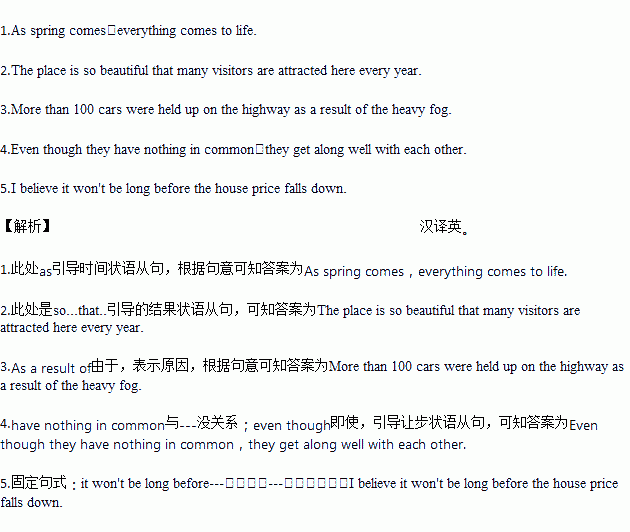题目内容
1.随着春天的到来,万物复苏了。(as)
_________________________________________________________________
2.这地方如此美丽以至于每年都有许多游客被吸引到这里。(so...that...)
_________________________________________________________________
3.由于大雾,100多辆车堵在高速上。(as a result of)
_________________________________________________________________
4.即使他们几乎没有共同点,他们相处很融洽。(in common)
_________________________________________________________________
5.我相信不久房价就会下降。(before)
_________________________________________________________________
练习册系列答案
 阅读快车系列答案
阅读快车系列答案
相关题目

